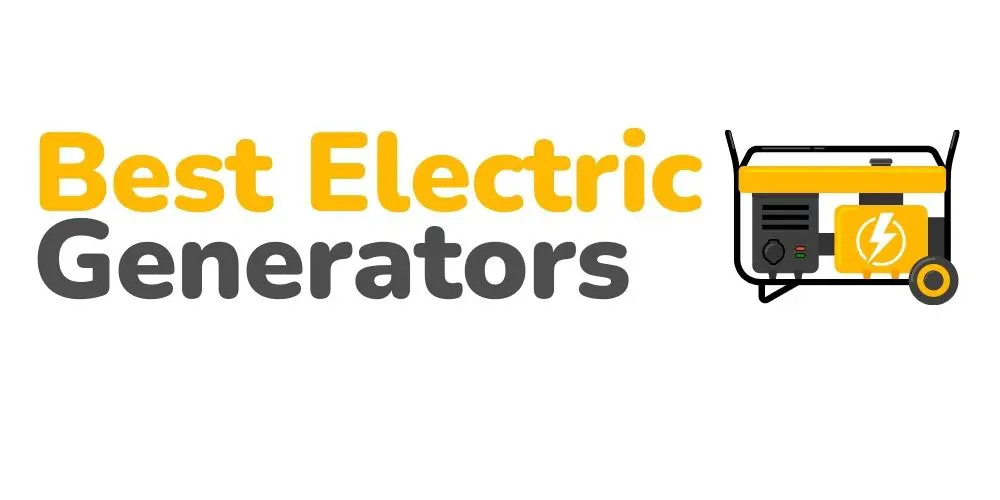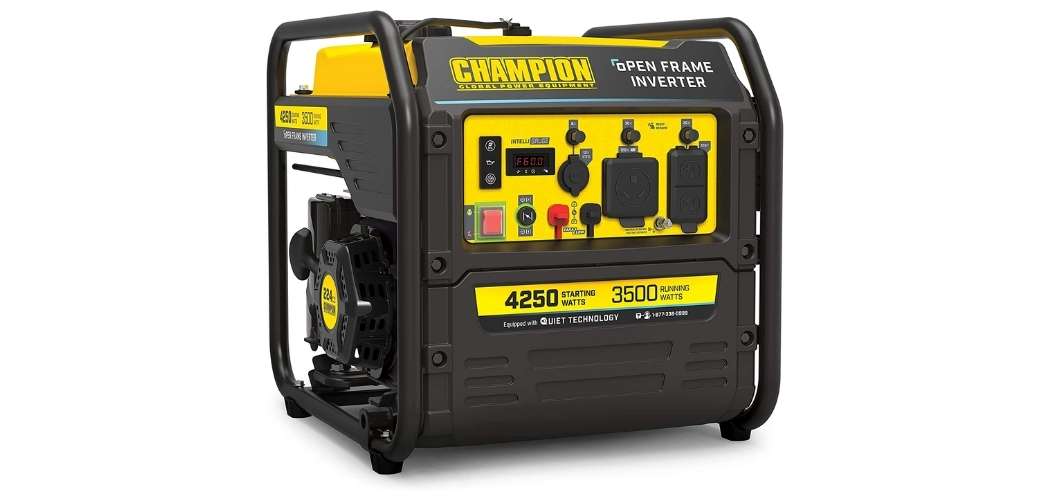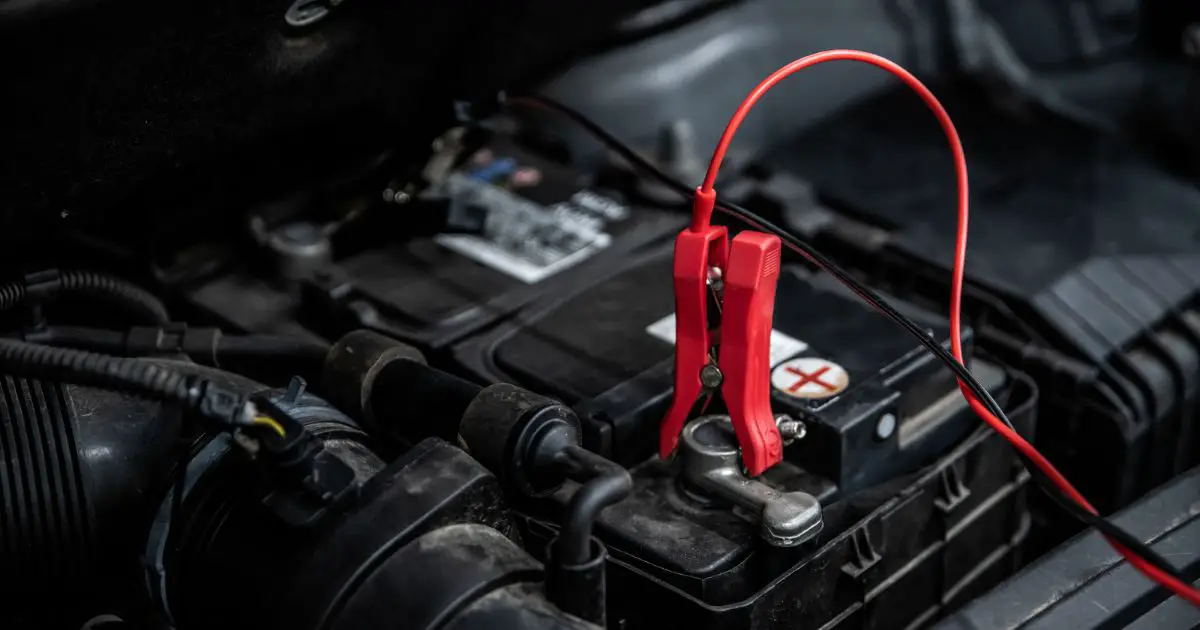In power outages, humans can’t live in complete darkness. That’s why you need a secondary power source in case you face an outage. A generator is the best choice for this situation. Generators have over the years produced backup power for houses and businesses.
Over time, the generators got upgraded. And now, there are several variations in these generators. One such is the inverter generators. Inverter generators are a great source of power. They produce clean power that ensures that your appliances will be safe.
So, what exactly is an inverter generator, and what does an inverter generator do?
What Is an Inverter Generator & How Do They Work?
An inverter generator works just like a regular generator. Like the generator, its engine uses fuel to turn the shaft. This shaft then rotates the alternator. In the alternator, the rotor induces the power into the stator. This way, the power is generated.
But, unlike the regular generator, this power doesn’t go directly to the power socket. The AC power is sent to the rectifier, which converts AC to DC. And with the help of an inverter, the DC power is then converted back into AC. This converted power is then supplied to the control panel.
This extra step is what differentiates the inverter generators from regular generators. Because the regular generators supply raw AC power, that power has higher total harmonic distortion. The more this Total Harmonic Distortion is, the unclean power is supplied.
In a regular/conventional generator, the THC is higher compared to that of an inverter generator. If the THC is high, sensitive appliances and equipment will get damaged over time. That’s why, if you have such appliances and electronics, inverter generators are the go.
Inverter generators are the compact version of conventional generators. They are quieter compared to conventional generators. But these generators have a lower power output, and they are costly too.
Can Inverter Generators Be Used Indoors?
The inverter generators are a great source of clean energy. This clean energy is best to power up sensitive appliances at home. Thanks to the clean energy source, TVs, chargers, etc., work appropriately on inverter generators.
But this doesn’t mean you can use an inverter generator indoors to power up those appliances.
Like the conventional generators, you need to place these generators outside because of the safety risks. Like the conventional generators, these produce Carbon Monoxide when generating power.
Carbon Monoxide is a deadly gas that you can’t see or smell. It causes headaches, dizziness, vomiting, chest pain, etc. If it builds up and is inhaled in large quantities, it can cause safety hazards.
That’s why you shouldn’t use it in closed or partially enclosed areas. Even if you open the garage doors, carbon monoxide can build up. Make sure that your generator is placed0 outdoors where the carbon monoxide can disperse in the open.
Still then, you should Install battery-operated Carbon monoxide alarms indoors. This way, if carbon monoxide starts to build up, you’ll know it before it causes any damage.
Carbon Monoxide isn’t the only damage that you’ll face indoors. There are other factors of a generator that are equally dangerous. The fuel tank in a generator is filled with gasoline, which is highly flammable.
If you overfill the tank, then the fuel in the generator will overflow onto the engine. If the engine is running and hot, it will cause fire or explosion.
So, if you’re using it outdoors, then the fuel can disperse in the air. And even if the generator catches fire, it won’t cause that much damage to you or your loved ones.
When Would You Use an Inverter Generator?
When it comes to inverter generators, one might wonder why they spend extra for a low output generator and when the conventional generator would give extra power at the same price.
That is because when getting an inverter generator, the main target isn’t the power output. It’s the quality of the output produced by the generator that’s why customers get inverter generators. And the generator’s impact on the environment plays another important role.
Inverter generators convert AC power into direct current and then back into AC power. This way, it greatly reduces the total harmonic distortion. And the lower the harmonic distortion is, the cleaner the energy supplied is.
An inverter generator is the perfect source of clean energy. With it, you can charge the laptop or smartphone. If you recharge these gadgets with conventional generators, greater harmonic distortion will damage the sensitive microprocessors inside.
Apart from that, the inverter generators are quiet. They produce around 50 to 60 dB of noise. This is as quiet as a conversation between 2 people.
Whereas if you talk about the conventional generators, they produce anywhere from 70 to 100 dB of noise. Now the difference between 60 dB to 70 seems small.
But to give you an idea, 100 dB of noise is up to 8 times louder than 70 dB of noise. 70 dB is as loud as a busy restaurant, whereas 100 dB is like listening to earbuds.
Use In the Home to Keep Things Ticking Over During a Temporary Blackout:
Whenever you’re facing a temporary blackout, you need a power source to power lights or fans. That’s where the inverter generators come in.
The inverter generators have a small power output, but they produce clean power. These generators are the perfect choice for temporary blackouts, where you need little power.
Of Course, you won’t be using the generator to power the air conditioner or space heater. But it’ll be used to power your freezer, lights, or chargers.
Unlike the conventional generators, they are quiet. Using an inverter generator won’t cause headaches due to the constant loud noise.
Where Can You Use Inverter Generators?
Like everything, inverter generators can be used in all situations. But what are the perfect conditions to get these generators?
To start, inverter generators have a lot of advantages over conventional generators. The inverter generators are quieter, compact, and lightweight.
These generators are fuel-efficient, but their fuel tanks aren’t that large as conventional generators. The inverter generator uses a computer that commands the generator to use a certain amount of fuel. This way, if your power consumption is lower, the generator will run slower.
With all this, what are the perfect conditions to use inverter generators? As we’ve mentioned before, the inverter generators produce clean energy. They are perfect for using sensitive equipment or appliances. If you want to charge your smartphone or watch TV, the generator is a perfect choice.
These generators cost more than conventional generators and can’t produce as much. They have situational usage. They are perfect for occasional usage. If you want a clean power supply on your trips, the inverter generators are the go.
How Much Do Inverter Generators Cost?
Inverter generators are expensive compared to conventional generators. The smaller inverter generators cost around $500. Whereas larger variations cost around $4000.
The inverter generators are expensive for several reasons. They are quieter than conventional generators. The inverter generators don’t work on their full.
That’s because they are designed to adjust according to the power demand. As they have control over the engine’s rpm, the generator is quiet compared to the conventional generators. With inverter generators, the noise is as loud as a conversation between two individuals.
As the inverter generators can control the engine’s rpm, they have a lower CO emission. But this doesn’t mean that you’ll ignore the Carbon Monoxide safety protocols.
What Equipment Can 2,000 – 3,000-Watt Inverter Generators Run?
2,000 to 3,000-watt generators are considered small. They don’t have enough power for all appliances. So they are used to essential appliances in an outage. The 2,000 – 3,000 watt generators can power several appliances. We’ve listed them down below to help you understand.
An inverter generator with surge wattage of up to 3,000 watts can power the following appliances at home.
| Item | Watts |
| Chest Freezer | 600 Watts |
| Coffee Maker | 800-1,200 Watts |
| Fridge | 2,000 Watts |
| Microwave | 1,200-2,000 Watts |
| Toaster | 1,000-1,500 Watts |
Whereas if you use the inverter generator for camping, you can power the following appliances.
| Item | Watts |
| Heater | 800-1,500 Watts |
| Laptop Charger | 20-90 Watts |
| Microwave | 1,200 Watts |
| Phone Charger | 10-65 Watts |
| Small Air Conditioner | 1,000-1,700 Watts |
What Size Inverter Generator Do You Need?
Choosing an inverter generator for your needs is a rather lengthy process. In this, you’ll need to do the following tasks.
- First off, make a list of all the appliances that you’ll use. These appliances should be essential. That is because you’ll be using an inverter generator, so you can’t afford that much wattage.
- Once you’ve made a list, next up is to find out their wattage. This would be written on the owner’s manual or the manufacturer’s tag. If you can’t find the wattage mentioned, you can contact the company’s representative.
- Next up is to total the wattage. Locate the appliance with the highest surge wattage. Add its surge wattage to the total.
- In the end, you’ll have the total wattage you’ll need. Increase the total wattage by a couple of hundreds. In the end, you’ll know what size inverter generator you need.
Conclusion
Inverter generators are best suitable if you need to power sensitive appliances at home. Appliances such as TV, chargers, etc., use sensitive microprocessors. And if these processors face an unclean current, they may start to behave abnormally.
An inverter generator produces a clean power source. The appliances at your home won’t get damaged with these inverter generators.
These generators are quieter compared to conventional generators. Fuel efficiency is one of the feats that they got. The generator doesn’t produce as much power as a conventional generator does. They cost quite a lot compared to conventional generators.


